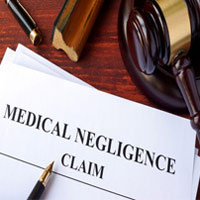Exercising After a Heart Attack
February 6, 2019 According to findings from a recent study published in the Journal of the American Heart Association, low amounts of exercise in the year following a heart attack can greatly reduce a person’s likelihood of dying from associated cardiac events.
According to findings from a recent study published in the Journal of the American Heart Association, low amounts of exercise in the year following a heart attack can greatly reduce a person’s likelihood of dying from associated cardiac events.
Quick Stats on Heart Attacks
The Centers for Disease Control and Prevention (CDC) report that every 1 in 4 Americans dies from heart disease – that means roughly 610,000 every year. Here are some other facts about heart attacks:
- Approximately 735,000 individuals have a heart attack in the United States annually;
- More than 200,000 people who have heart attacks each year have had one (or more) already;
- Less than 30% of people can correctly identify what the symptoms of a major heart attack are (e.g. discomfort in the back, neck, jaw, stomach, one or both arms, breaking out in a cold sweat, etc.);
- Nearly half of all sudden cardiac deaths happen outside of a hospital or healthcare setting – which means that people fail to act quickly enough despite warning signs, or may not have known they were ill in the first place, and:
- If you suspect that someone is having a heart attack, you should always call 9-1-1 right away
The Researcher’s Methods
In order to determine how helpful exercise after a heart attack is for cardiac patients, Swedish researchers examined data on more than 22,000 heart attack patients over a ten-year period. Patients were asked about their exercise habits within six to ten weeks of their heart attack event, and then again approximately one year after the incident took place. Even heart attack survivors who reported having a “reduced” activity level between their two appointments (the first at six weeks and the second at one year) had a 44% lower risk of death than patients who reported being physically inactive. Researchers are interpreting these results to mean there may be carryover effects for people with a history of higher levels of exercise or physical activity in their lives.
Study participants who reported being “consistently active” between both follow-up visits had a 71% lower chance of dying from cardiac complications. The researchers say that their findings support the fact that exercise can be one of the “most important medicines people can take” when it comes to combating the risks and hazards associated with having a serious, life-threatening heart event.
Lastly, participants who reported having an “increased activity” level, such as starting a brand new exercise routine after having their heart attack, were 59% less likely to die in the years following the event. Altogether, people who used to exercise or maintained low-to-moderate physical activity levels limited their risk of heart attack-associated death by anywhere between an astounding 44% and 71%.
Getting Physically Active
Before a heart attack survivor starts his or her new exercise routine, it is important to speak with a doctor to discuss both the risks and benefits. Although exercise is proven to play a significant role in limiting the risk of death after having a heart attack, the needs of every individual must be taken into consideration. There are numerous different types of exercise out there, and a medical professional can aid in determining the best plan – at the same time as keeping a person’s individual medical history in mind.
Healthcare workers want people to know that exercise is about consistency. While working out for a few days or weeks is better than nothing at all, professionals recommend being regularly physically active. Even walking for 30-60 minutes a day can make a big difference for someone’s overall cardiac health. Especially since this February marks American Heart Month, our team at Galfand Berger wants to urge you and your loved ones to take meaningful strides towards maintaining your heart health. If you have questions about medical care you received and want to speak with an attorney, please contact a representative at our firm directly.
Philadelphia Medical Malpractice Lawyers at Galfand Berger, LLP Representing Injured Individuals Since 1947
If you were a victim of medical malpractice or negligence, please contact our Philadelphia medical malpractice lawyers at Galfand Berger who can help. With offices located in Philadelphia, Bethlehem, Lancaster, and Reading we serve clients throughout Pennsylvania and New Jersey. To schedule a consultation, call us at 800-222-8792 or complete our online contact form.
 Google Screened
Google Screened
